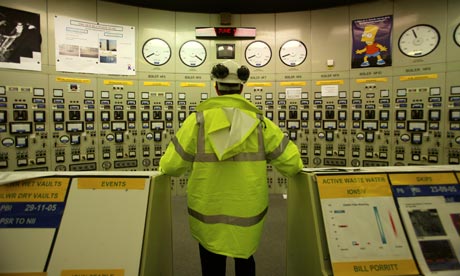This week French state-owned power company EDF was given permission to start the preconstruction of “Hinkley C”, the third nuclear power station on the Somerset coast of the Bristol channel and what is expected to be the first nuclear power station to be built in Britain in over 20 years. This will involve clearing over 400 acres of land and excavating more soil and rock than was dug up for the London Olympic Games.

Is this good for Britain?
Nuclear is considered by the government to be an entirely safe, cheap and predictable electricity source, ideally suited to work in conjunction with less predictable wind power to provide the 80% of low-carbon electricity that Britain must generate by 2050 to meet its ambitious statutory climate targets.
What are the pros and cons?
Hinckley is one of eight sites now earmarked for a new generation of nuclear power stations. All are sited next to existing stations, which means there is an available workforce and less opposition from local communities who have come to depend on nuclear power for jobs and income.
Hinckley C, and a twin station at Sizewell in Suffolk, if built should each provide around 1,600MW of electricity from third-generation, twin-unit European pressurised reactors (EPR). Prototypes for these stations are being built in Flammanville in France and at Olkiluoto in Finland.
Are they really cheap?
Both the French and the Finnish prototype stations have doubled in price to around £6bn each and are taking twice as long – six years – to construct than expected. Hinckley C was intended to be generating electricity by 2018, but this is now considered unlikely. No commercial nuclear plant has ever been built in Britain on time or at the anticipated cost and City analysts do not think EDF will be able to construct nuclear plants any more cheaply in Britain than elsewhere.
Nuclear critics argue that the climate targets can be met with renewables and that nuclear’s costs have been distorted because companies do not have to pay for insurance, or storing the waste for thousands of years. In addition, they say that costs may rise further because of the Fukushima disaster in Japan, which raised safety questions in all nuclear power stations.
Nuclear advocates say that only nuclear can now provide the quantity of energy needed for the next 40 years. But its critics point to Germany, Italy, Switzerland and possibly Japan, which have turned their back on the much-disputed power source.
 Follow
Follow